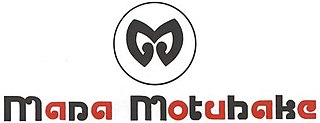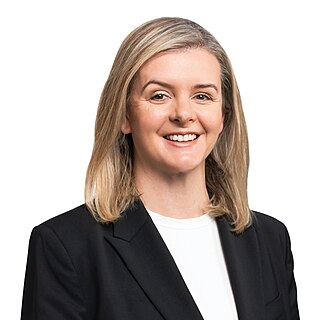Related Research Articles

The politics of New Zealand function within a framework of an independent, unitary, parliamentary democracy. The system of government is based on the Westminster system, and the legal system is modelled on the common law of England. New Zealand is a constitutional monarchy in which King Charles III is the sovereign and head of state, while his prime minister serves as the head of government.
The New Zealand Labour Party, also known simply as Labour, is a centre-left political party in New Zealand. The party's platform programme describes its founding principle as democratic socialism, while observers describe Labour as social democratic and pragmatic in practice. The party participates in the international Progressive Alliance. It is one of two major political parties in New Zealand, alongside its traditional rival, the National Party.
The New Zealand National Party, shortened to National or the Nats, is a centre-right New Zealand political party that is the current senior ruling party. It is one of two major parties that dominate contemporary New Zealand politics, alongside its traditional rival, the Labour Party.

Electoral reform in New Zealand has been a political issue in the past as major changes have been made to both parliamentary and local government electoral systems.

Christopher Joseph Carter is a former New Zealand Labour Party and independent Member of the New Zealand Parliament. He was a senior Cabinet Minister in the Fifth Labour Government of New Zealand, serving lastly as Minister of Education, Minister Responsible for the Education Review Office and Minister of Ethnic Affairs. He was the Member of Parliament for the Te Atatu electorate, where he was first elected in 1993. He did not win re-election in 1996, but won a new and expanded Te Atatu seat in 1999. In 2010, he was suspended from the Labour Party caucus following a dispute with party leader Phil Goff, shortly afterwards he became an independent MP. He was expelled by the Labour Party for breaching the Party's constitution in bringing the Party in disrepute, on 11 October 2010. In September 2011 Carter resigned from Parliament following his appointment to a United Nations position in Afghanistan where he served for 4 years. In 2015 he was appointed to head UN operations in Rakhine State in Myanmar where he served for 3 years. In 2018 he rejoined the New Zealand Labour Party and stood for election as a Labour Party representative in the 2019 New Zealand local elections. Carter was elected and appointed as Chairperson of the Henderson Massey Local Board with 11,250 votes. He also won election in 2019 as one of the seven elected board members of the Waitemata District Health Board with 14,593 votes. Both positions have three year terms.

The 2002 New Zealand general election was held on 27 July 2002 to determine the composition of the 47th New Zealand Parliament. It saw the reelection of Helen Clark's Labour Party government, as well as the worst-ever performance by the opposition National Party.

The 1999 New Zealand general election was held on 27 November 1999 to determine the composition of the 46th New Zealand Parliament. The governing National Party, led by Prime Minister Jenny Shipley, was defeated, being replaced by a coalition of Helen Clark's Labour Party and the smaller Alliance. This marked an end to nine years of the Fourth National Government, and the beginning of the Fifth Labour Government which would govern for nine years in turn, until its loss to the National Party in the 2008 general election. It was the first New Zealand election where both major parties had female leaders.
United Future New Zealand, usually known as United Future, was a centrist political party in New Zealand. The party was in government between 2005 and 2017, first alongside Labour (2005–2008) and then supporting National (2008–2017).

Dame Tariana Turia is a former New Zealand politician. She was first elected to Parliament in 1996. Turia gained considerable prominence during the foreshore and seabed controversy in 2004, and eventually broke with the Labour Party as a result. She resigned from parliament, and successfully contested a by-election in her former electorate as a candidate of the newly formed Māori Party, of which became a co-leader. She retired from Parliament in 2014.
Te Pāti Māori, also known as the Māori Party, is a political party in New Zealand advocating Māori rights. With the exception of a handful of general electorates, Te Pāti Māori contests the reserved Māori electorates, in which its main rival is the Labour Party.

The 47th New Zealand Parliament was a term of the Parliament of New Zealand. Its composition was determined by the 2002 election, and it sat until 11 August 2005.
Paul Gavin Adams is a politician and former rally driving champion from New Zealand.

Mana Māori Motuhake was a Māori political party in New Zealand from 1980 to 2005. The name is difficult to translate accurately, but essentially refers to Māori self-rule and self-determination — mana, in this context, can be understood as "authority" or "power", while motuhake can be understood as "independent" or "separate". The purpose of the party was to unify Māori to gain 'political potency'. From 1991 to 2002, the party participated in the left-wing Alliance.

Voting in New Zealand was introduced after colonisation by Britain. The first New Zealand Constitution Act was passed in 1852, and the first parliamentary elections were held the following year.

Helen Elizabeth Clark is a New Zealand politician who served as the 37th prime minister of New Zealand from 1999 to 2008 and was the administrator of the United Nations Development Programme from 2009 to 2017. She was New Zealand's fifth-longest-serving prime minister, and the second woman to hold that office.

Willow-Jean Prime is a New Zealand politician. She was first elected a Member of the New Zealand House of Representatives at the 2017 general election as a list representative of the New Zealand Labour Party. She was elected as the Member of Parliament for Northland at the 2020 general election and was re-elected as a list MP in 2023.

Naisi Chen is a New Zealand politician. She served as a Member of Parliament for the Labour Party from 2020 to 2023.

Camilla Vera Feslier Belich is a New Zealand lawyer, trade unionist and politician. She has been a Member of Parliament, representing the New Zealand Labour Party, since 2020.
Donna Marie Pokere-Phillips is a New Zealand politician known for her conspiracy-driven views. She is the co-leader of the NZ Outdoors & Freedom Party.
References
- 1 2 Orsman, Bernard (29 July 2002). "Rise and rise of Kelly Chal". NZ Herald. Retrieved 4 November 2024.
- ↑ "Citizenship of Members of Parliament". Te Ara - The Encyclopedia of New Zealand. Manatū Taonga Ministry for Culture and Heritage. Retrieved 12 July 2022.
- 1 2 "United Future MP loses seat over citizenship". NZ Herald. 13 August 2002. Retrieved 4 November 2024.
- ↑ "United Future Announces Top 20". Scoop News. 26 March 2024. Retrieved 4 November 2024.
- ↑ NZ Parliamentary Library (5 August 2002). Provisional results for the 2002 New Zealand general election (Report). Retrieved 5 November 2024.
- ↑ David Green. "Citizenship of members of Parliament", Te Ara - the Encyclopedia of New Zealand. Updated 21 September 2007.
- ↑ "2002 General Election: Election of List Candidates". 15 August 2002. Retrieved 4 November 2024.
- ↑ "No police probe into Chal error". Television New Zealand . 19 August 2002. Retrieved 8 October 2011.
Chief electoral officer David Henry has completed an investigation into her candidacy, and says it appears Chal's error was the result of confusion.